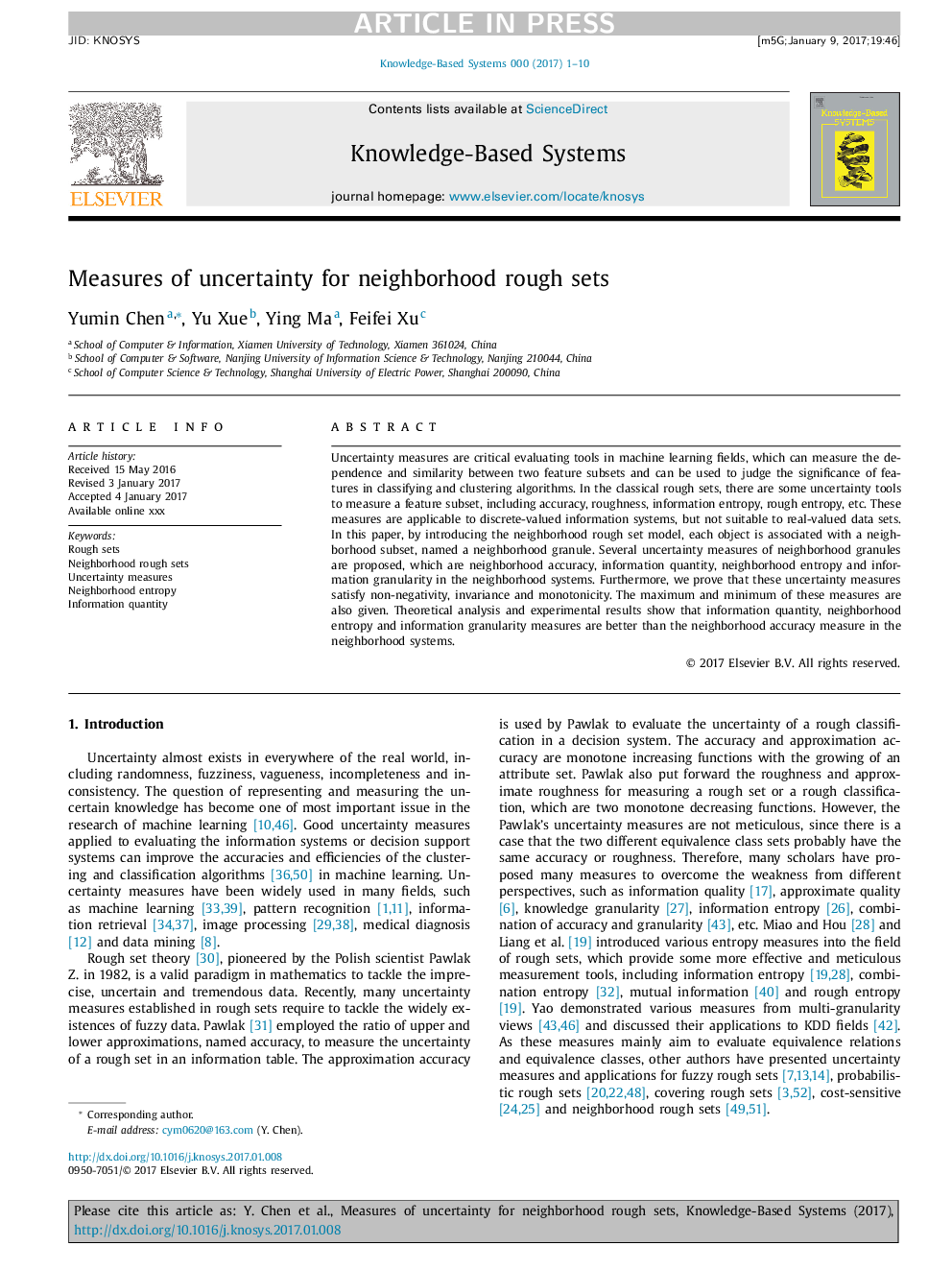| Article ID | Journal | Published Year | Pages | File Type |
|---|---|---|---|---|
| 4946174 | Knowledge-Based Systems | 2017 | 10 Pages |
Abstract
Uncertainty measures are critical evaluating tools in machine learning fields, which can measure the dependence and similarity between two feature subsets and can be used to judge the significance of features in classifying and clustering algorithms. In the classical rough sets, there are some uncertainty tools to measure a feature subset, including accuracy, roughness, information entropy, rough entropy, etc. These measures are applicable to discrete-valued information systems, but not suitable to real-valued data sets. In this paper, by introducing the neighborhood rough set model, each object is associated with a neighborhood subset, named a neighborhood granule. Several uncertainty measures of neighborhood granules are proposed, which are neighborhood accuracy, information quantity, neighborhood entropy and information granularity in the neighborhood systems. Furthermore, we prove that these uncertainty measures satisfy non-negativity, invariance and monotonicity. The maximum and minimum of these measures are also given. Theoretical analysis and experimental results show that information quantity, neighborhood entropy and information granularity measures are better than the neighborhood accuracy measure in the neighborhood systems.
Related Topics
Physical Sciences and Engineering
Computer Science
Artificial Intelligence
Authors
Yumin Chen, Yu Xue, Ying Ma, Feifei Xu,
